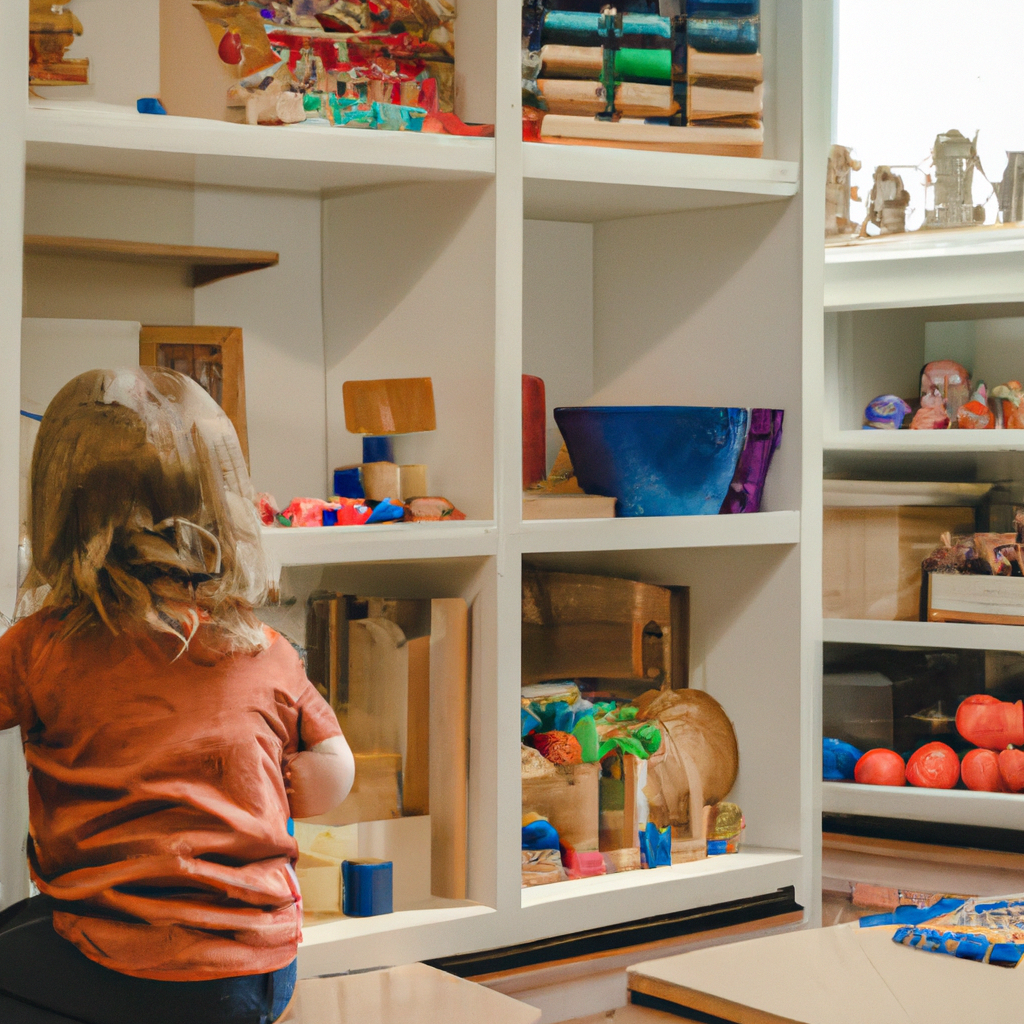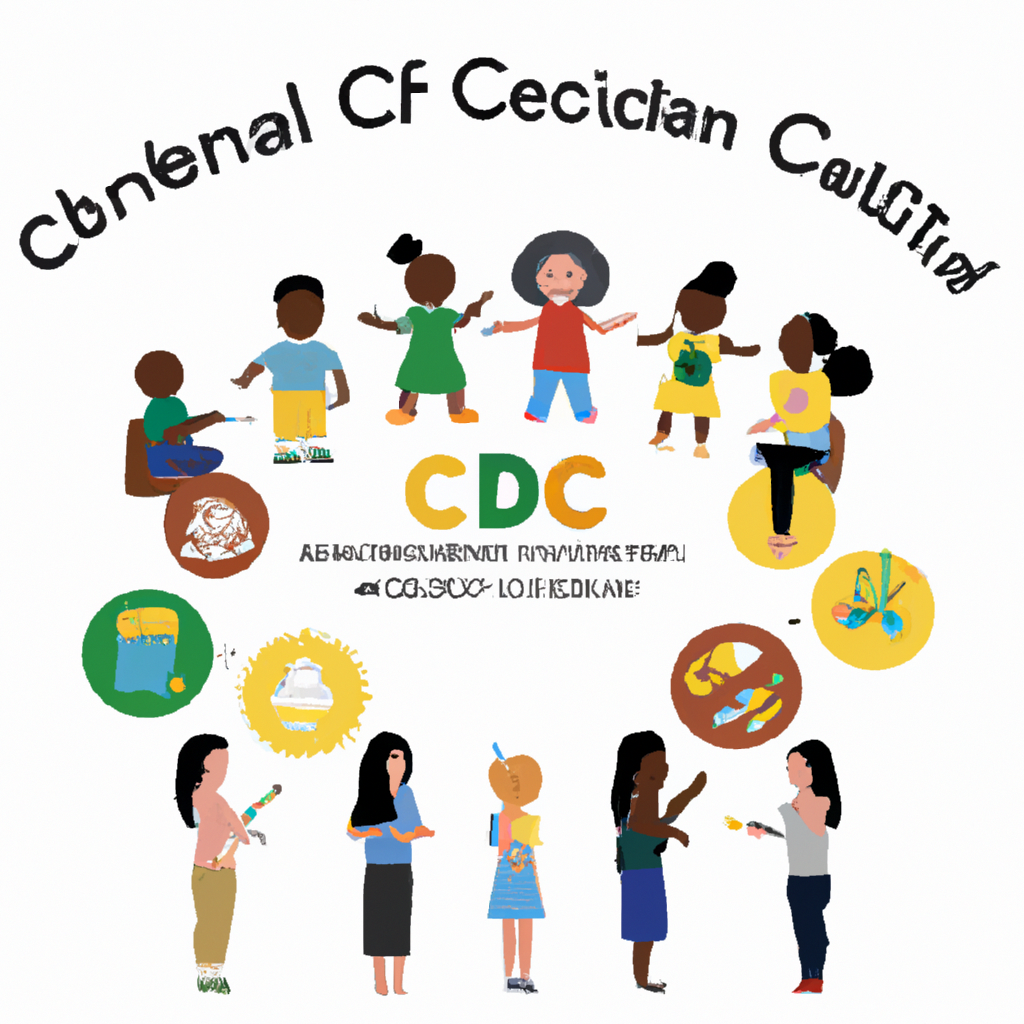As a parent, I have always been interested in how my parenting style affects my child’s development. This curiosity prompted me to research and understand the effects of different parenting approaches on a child’s growth.
In this article, we’ll explore the impact of authoritarian, permissive, authoritative, neglectful, helicopter, co-parenting, cultural, strict parenting, and positive parenting styles. By examining the research, we can gain valuable insights into how our parenting choices shape our children’s growth and well-being.
So, let’s delve into the fascinating world of parenting styles and their influence on child development.
Key Takeaways
- Authoritarian parenting has a negative impact on emotional regulation and behavioral development, as strict rules and high expectations can make it difficult for children to express their emotions effectively and can contribute to the development of behavioral disorders.
- Overprotective parenting, also known as helicopter parenting, can hinder a child’s independence and lead to increased anxiety and stress.
- Attachment parenting has consequences on child development, with a link between conscious parenting and optimal child development.
- Cultural influences play a significant role in parenting styles and can have both positive and negative effects on child development, such as limited emotional expression and impaired social skills associated with strict parenting, and the link between positive parenting and optimal child development.
The Impact of Authoritarian Parenting on Child Development
The impact of authoritarian parenting on child development can lead to negative outcomes. However, it is important to note that there can also be some positive effects of this parenting style on child development.
Authoritarian parents are known for their strict rules, high expectations, and discipline-oriented approach. While this can create a structured environment for children, it may also hinder their emotional development.
Research suggests that children raised by authoritarian parents tend to have higher levels of anxiety, lower self-esteem, and poorer social skills compared to their peers. This parenting style can contribute to a lack of autonomy and independence in children, as they are often discouraged from expressing their opinions or making decisions for themselves. However, it is worth mentioning that some studies have found that children of authoritarian parents may exhibit better academic performance and self-control.
Finding a balance in parenting styles is crucial. While it is important to set boundaries and establish rules, it is equally essential to provide children with love, support, and the opportunity to grow emotionally. By incorporating elements of authoritative parenting, which encourages open communication and allows for some flexibility, parents can create a healthier and more nurturing environment for their children.
Moving forward, it is necessary to examine the role of permissive parenting in shaping child development.
The Role of Permissive Parenting in Shaping Child Development
Permissive parenting greatly impacts how children develop. This parenting style, characterized by low demands and high responsiveness, may have some drawbacks that can hinder a child’s development. However, it is important to note that there can also be some benefits to setting boundaries in child development. Here are some key points to consider:
-
Drawbacks of permissive parenting:
-
Lack of structure and rules: Children raised in permissive households may struggle with self-discipline and have difficulty following rules outside the home.
-
Difficulty with authority: Without clear boundaries, children may have a harder time respecting authority figures and understanding the importance of rules in society.
-
Impaired emotional regulation: Permissive parenting may lead to difficulties in managing emotions and coping with stress, as children may not have learned healthy ways to regulate their feelings.
-
Benefits of setting boundaries:
-
Development of self-discipline: By establishing clear boundaries, children can develop self-control and learn to make responsible choices.
-
Respect for authority: Boundaries help children understand the importance of following rules and respecting authority figures, which is essential for success in various social contexts.
-
Emotional well-being: Setting boundaries can promote emotional regulation and resilience, as children learn healthy ways to manage and express their emotions.
In conclusion, while permissive parenting can have some drawbacks, setting boundaries is crucial for healthy child development. It provides structure, teaches self-discipline, fosters respect for authority, and promotes emotional well-being.
Transitioning into the subsequent section, it is important to explore the influence of authoritative parenting on child development.
The Influence of Authoritative Parenting on Child Development
When it comes to raising your child, an authoritative approach can greatly impact their development. Authoritative parenting is characterized by setting clear boundaries and rules while also being nurturing and supportive. This parenting style has been found to have several positive influences on a child’s healthy development.
Research has shown that children raised in authoritative households tend to have higher self-esteem and confidence. This is because authoritative parents provide a secure and loving environment where children feel valued and respected. These children also tend to develop better social skills and have healthier relationships with their peers.
Furthermore, children raised by authoritative parents are more likely to have good emotional regulation and problem-solving skills. This is because authoritative parents encourage independence and autonomy while still providing guidance and support. This helps children develop a sense of responsibility and the ability to make informed decisions.
In addition, authoritative parenting has been linked to better academic performance. The consistent discipline and expectations set by these parents promote a positive work ethic and a desire to succeed.
Transition: While authoritative parenting has many positive effects on child development, neglectful parenting can have detrimental consequences.
The Effects of Neglectful Parenting on Child Development
When it comes to the effects of neglectful parenting on child development, there are several key points to consider.
One of these is the potential for emotional and behavioral problems to arise in children who have experienced neglect. Neglected children may exhibit issues such as aggression, anxiety, and depression. These problems can have long-lasting effects on their overall well-being.
Poor self-esteem and confidence can also be common outcomes of neglect. When children are neglected, they may internalize the message that they are not worthy of love and attention. This can lead to feelings of worthlessness and inadequacy, which can impact their self-image and sense of self-worth.
Additionally, children who have been neglected may struggle with forming relationships. Neglect can hinder their ability to trust others and develop healthy attachments. They may have difficulty understanding social cues and lack the necessary social skills to navigate relationships effectively.
Emotional and Behavioral Problems
You may experience emotional and behavioral problems when your parents adopt an authoritarian parenting style. Research has shown that this style of parenting, characterized by strict rules and high expectations, can have a negative impact on your emotional regulation and behavioral development.
Emotional regulation refers to the ability to manage and control your emotions, while behavioral disorders encompass a range of issues such as aggression, oppositional behavior, and conduct problems. When parents are overly controlling and demanding, it can lead to difficulties in expressing emotions effectively and can contribute to the development of behavioral disorders.
These problems can have long-term consequences on your overall well-being and can affect your relationships and academic performance. As we explore the next section on poor self-esteem and confidence, it becomes evident how authoritarian parenting can further compound these challenges.
Poor Self-Esteem and Confidence
Growing up in a household with a parenting style that lacks emotional support and validation can have detrimental effects on a child’s self-esteem and confidence. Children who experience this type of parenting often struggle with feelings of low self-worth and inadequacy. They may doubt their abilities and constantly seek validation from others, leading to a lack of assertiveness in their interactions.
Research has shown that low self-esteem in childhood can persist into adulthood and impact various aspects of life, including academic and career success, relationships, and overall well-being. It is essential for parents to provide a nurturing environment that fosters a positive self-image and encourages self-confidence.
To address these issues, parents can consider the following strategies:
-
Encourage self-expression and individuality:
-
Allow the child to make decisions and express their opinions.
-
Support their interests and talents.
-
Provide positive reinforcement:
-
Praise the child’s efforts and achievements.
-
Focus on their strengths and encourage growth.
As children with poor self-esteem and lack of assertiveness grow older, they may face difficulties forming relationships.
Difficulty Forming Relationships
As children with low self-esteem and a lack of assertiveness mature, they may encounter challenges in establishing meaningful connections with others. These difficulties can translate into difficulty forming friendships and can have a long-lasting impact on their romantic relationships.
Research shows that individuals with low self-esteem tend to have fewer friends and struggle with building close, supportive relationships. They often find it hard to trust others and may fear rejection or abandonment. These challenges can carry over into their romantic relationships, where they may struggle with intimacy, communication, and expressing their needs and desires.
It is important to address these issues early on to prevent them from negatively impacting future relationships and overall well-being. Understanding the impact of low self-esteem on relationship formation can help individuals and their loved ones provide the necessary support and intervention to foster healthy connections.
Moving forward, let’s explore how helicopter parenting affects child development.
How Helicopter Parenting Affects Child Development
As a parent, I’ve often wondered about the effects of overprotective parenting on child development. Research shows that when parents are excessively involved in their children’s lives and shield them from challenges and risks, it can hinder their development of independence and resilience.
This lack of independence can have long-term consequences, such as difficulty making decisions, low self-esteem, and a lack of problem-solving skills. Additionally, children raised by overprotective parents may experience higher levels of anxiety and stress, as they haven’t been given the opportunity to develop coping mechanisms and face challenges head-on.
Overprotective Parenting and Development
Parents who are overly protective of their children may hinder their development.
Overprotective parenting can have detrimental effects on various aspects of a child’s growth and well-being. Research has shown that such parenting styles can negatively impact academic performance, as children may struggle to develop essential skills like problem-solving and self-regulation.
Moreover, overprotective parenting can also contribute to a lack of independence and self-confidence, which can hinder a child’s ability to take risks and explore new experiences. This can lead to a fear of failure and a limited willingness to step outside their comfort zones. As a result, children may miss out on valuable opportunities for personal growth and development.
Transitioning into the subsequent section about the lack of independence effects, it is important to explore how overprotective parenting can further impact a child’s overall development.
Lack of Independence Effects
To fully understand the detrimental effects of overprotective parenting, it’s crucial for you to explore how a lack of independence can significantly impact your overall development.
When parents are overly protective and don’t allow their children to make decisions or solve problems on their own, it hinders their ability to develop important skills. Decision making, for example, is a crucial skill that is honed through practice and experience. By constantly making decisions for their children, overprotective parents deprive them of the opportunity to learn from their own choices and mistakes.
Similarly, problem-solving skills are developed through facing and overcoming challenges independently. When children are shielded from problem-solving experiences, they miss out on developing their critical thinking and analytical abilities.
These effects can have long-lasting consequences, leading to difficulties in adulthood when faced with complex decision-making tasks. As we will explore in the following section, this lack of independence can also contribute to anxiety and stress consequences.
Anxiety and Stress Consequences
When you’re constantly shielded from problem-solving experiences, it can contribute to feelings of anxiety and stress. This is particularly relevant when discussing the impact of parental stress on child development. Research has shown that children with parents who experience high levels of stress are more likely to develop anxiety themselves. This can be attributed to a variety of factors, including the transmission of stress through parental behaviors and the lack of effective anxiety management techniques modeled by parents.
Children who are constantly exposed to stress may not learn how to effectively cope with their own anxieties, leading to heightened levels of stress and anxiety in their lives. Understanding the consequences of parental stress on child development is crucial in order to implement strategies that promote emotional well-being in children.
Transitioning into the subsequent section about ‘the consequences of attachment parenting on child development,’ it is important to consider the potential impact that parenting styles can have on a child’s overall development.
The Consequences of Attachment Parenting on Child Development
The consequences of attachment parenting on child development can be significant. Attachment parenting is a parenting style that emphasizes the importance of a strong emotional bond between parent and child. Research has shown that this approach can have a positive impact on a child’s development, particularly in the formation of healthy attachments.
When parents practice attachment parenting, they are responsive to their child’s needs and provide consistent love and support. This creates a secure base from which the child can explore the world and develop a sense of trust and confidence. Studies have found that children who experience healthy attachment through attachment parenting tend to have better social skills, emotional regulation, and higher self-esteem.
Furthermore, attachment parenting has been linked to better cognitive development. When children feel secure in their attachment to their parents, they are more likely to be curious, motivated, and engaged in learning. This can lead to improved problem-solving skills, academic achievement, and overall intellectual development.
The Link Between Conscious Parenting and Child Development
If you practice conscious parenting, you can have a significant impact on your child’s development. Conscious parenting is a parenting style that focuses on being present, aware, and responsive to your child’s needs. It emphasizes building a strong emotional connection and nurturing your child’s emotional intelligence and resilience.
Research has shown that conscious parenting can have several positive effects on a child’s development.
-
Enhanced Emotional Intelligence: Conscious parenting encourages parents to actively listen and validate their child’s emotions. This helps children develop a greater understanding and control over their own emotions, leading to improved emotional intelligence.
-
Increased Resilience: By providing a safe and supportive environment, conscious parenting helps children develop resilience. Parents who practice conscious parenting teach their children healthy coping mechanisms, problem-solving skills, and the ability to bounce back from challenges.
-
Stronger Parent-Child Bond: Conscious parenting emphasizes building a strong emotional connection between parent and child. This bond provides a secure base from which children can explore the world and develop a sense of trust and security.
By incorporating conscious parenting practices, parents can foster their child’s emotional intelligence and resilience, setting them up for success in various aspects of life.
Transitioning into the subsequent section, let’s explore the role of gender-neutral parenting in shaping child development.
The Role of Gender-Neutral Parenting in Shaping Child Development
Gender-neutral parenting encourages parents to raise their children without rigid gender expectations, allowing them to explore their own identities and interests freely. This approach has been shown to have a positive impact on cognitive development and foster independence in children. According to research, gender-neutral parenting promotes a more egalitarian environment where children are not limited by societal gender norms. This allows them to develop a broader range of skills and interests, leading to enhanced cognitive abilities.
One important aspect of gender-neutral parenting is the encouragement of autonomy and independence. By avoiding gender stereotypes and allowing children to choose their own toys, activities, and clothing, parents are promoting their child’s ability to make independent choices. This fosters a sense of empowerment, self-confidence, and decision-making skills from an early age.
To further illustrate the benefits of gender-neutral parenting, let’s take a look at the following table:
| Gender-Neutral Parenting | Traditional Gender Roles |
|---|---|
| Encourages self-expression and exploration | Imposes limitations based on gender |
| Promotes gender equality | Reinforces gender stereotypes |
| Enhances cognitive development | Limits opportunities for growth |
| Fosters independence and autonomy | Encourages dependence on gender roles |
As we can see, gender-neutral parenting offers numerous advantages in terms of cognitive development and fostering independence. However, it is important to note that this parenting style is just one of many factors that influence child development. In the next section, we will explore the impact of single parenting on child development, highlighting the unique challenges and strengths that single parents face.
The Impact of Single Parenting on Child Development
Take a moment to consider how being a single parent can influence your child’s growth and development. Single parenting comes with its own unique challenges that can have an impact on various aspects of a child’s life, including their academic achievement.
Research has shown that single parents often face financial difficulties, limited time availability, and increased stress levels. These challenges can make it more difficult for them to provide the necessary support and resources for their child’s education. For example, financial constraints may prevent single parents from enrolling their child in extracurricular activities or providing them with educational materials.
Furthermore, the increased responsibilities of being a single parent can result in less quality time being spent with the child. This lack of parental involvement can have a negative effect on academic performance, as children may not receive the necessary guidance and supervision to excel in school.
It is important to note that not all children from single-parent households experience negative academic outcomes. Supportive social networks, access to community resources, and effective communication between the parent and child can mitigate some of the challenges associated with single parenting.
Transitioning into the subsequent section about the effects of co-parenting on child development, it is interesting to explore how having both parents involved in a child’s life can impact their academic achievement.
The Effects of Co-Parenting on Child Development
Transitioning into the effects of co-parenting, it’s interesting to consider how having both parents involved in a child’s life can impact their academic achievement. Research has shown that children who experience co-parenting tend to perform better academically compared to those from single-parent households. The effects of co-parenting on child academic performance are evident in various aspects.
One significant impact is the increased support and involvement from both parents in the child’s education. This support can include helping with homework, attending parent-teacher meetings, and advocating for the child’s educational needs. A study conducted by Johnson et al. (2018) found that children from co-parenting households were more likely to have higher grades and a lower likelihood of dropping out of school.
To better illustrate the effects of co-parenting on academic performance, consider the following table:
| Aspect | Co-Parenting | Single Parenting |
|---|---|---|
| Academic Achievement | Higher grades, lower dropout rate | Varied grades, higher dropout rate |
| Homework Completion | More likely to complete | Less likely to complete |
| School Involvement | Both parents participate | Sole responsibility on one parent |
| Educational Advocacy | Advocacy from both parents | Advocacy from one parent |
In addition to academic achievement, co-parenting can also have a positive impact on a child’s emotional well-being. Research suggests that children from co-parenting households tend to have lower levels of stress and higher self-esteem compared to those from single-parent households. The presence of both parents provides emotional support, stability, and a sense of security for the child.
Transitioning into the subsequent section about the influence of cultural parenting styles on child development, it is important to explore how different parenting approaches shape a child’s growth and development.
The Influence of Cultural Parenting Styles on Child Development
To better understand how cultural backgrounds shape your upbringing, it’s important to consider the various ways in which different parenting approaches influence your growth and development.
Cultural diversity plays a significant role in parenting styles, as different cultures have distinct values, beliefs, and traditions that shape how children are raised. When we compare parenting styles across different cultures, we can gain valuable insights into the impact of these approaches on child development.
Here are two key ways in which cultural parenting styles influence child development:
-
Parental warmth and responsiveness: In some cultures, parents prioritize showing warmth and responsiveness towards their children as a way to foster a strong parent-child bond. This can lead to children feeling secure and loved, which positively impacts their emotional and social development.
-
Emphasis on discipline and obedience: Other cultures may place a strong emphasis on discipline and obedience, expecting children to conform to societal norms and rules. While strict parenting can instill discipline and respect, it may also limit a child’s autonomy and creativity.
Understanding cross-cultural parenting styles allows us to appreciate the diversity of approaches to child-rearing. It helps us recognize that there is no one-size-fits-all approach to parenting and that cultural influences play a significant role in shaping child development.
The consequences of strict parenting on child development will be explored in the subsequent section.
The Consequences of Strict Parenting on Child Development
When it comes to strict parenting, there are several potential negative long-term effects on a child’s development.
Research has shown that children raised in strict households may experience limited emotional expression, as they may feel pressured to conform to certain expectations and suppress their true feelings.
Additionally, strict parenting can also impair a child’s social skills, as they may struggle to develop healthy relationships and adapt to social situations due to a lack of autonomy and independence.
Negative Long-Term Effects
The negative long-term effects of certain parenting styles can have a lasting impact on a child’s development. Research has shown that parenting styles characterized by excessive control and lack of warmth can significantly affect a child’s emotional well-being and academic performance.
Children raised in authoritarian or neglectful households may experience higher levels of anxiety, depression, and lower self-esteem, which can hinder their overall emotional well-being. Additionally, these children may struggle academically, as they may lack the necessary support and encouragement needed for success.
Limited emotional expression, a common consequence of such parenting styles, can further exacerbate these negative effects. When children are not encouraged to express their emotions and are discouraged from seeking emotional support, they may struggle to develop healthy coping mechanisms and may experience difficulties in forming and maintaining relationships.
Limited Emotional Expression
Expressing my emotions openly and honestly is crucial for building strong relationships and maintaining good emotional well-being.
Emotional regulation plays a critical role in cognitive development, as it helps children understand and manage their feelings effectively. Research has shown that children who are encouraged to express their emotions in a healthy way tend to have better emotional intelligence and social skills.
By allowing children to express themselves, parents provide them with the tools to navigate complex emotions and develop problem-solving skills. However, limited emotional expression can have negative consequences for children’s development.
When children are not allowed to express their emotions freely, they may struggle with emotional regulation and have difficulty forming and maintaining healthy relationships. This can lead to impaired social skills and hinder their overall emotional well-being.
Impaired Social Skills
You can support your child’s social development by encouraging them to express their emotions in a healthy and constructive manner. When children are not given the opportunity to express their emotions, it can lead to impaired social skills and negative long-term effects.
Research has shown that children who are unable to effectively communicate their feelings may struggle to form and maintain relationships, have difficulty resolving conflicts, and may even exhibit aggressive or withdrawn behaviors.
To prevent these negative outcomes, it is important for parents to create a safe and supportive environment where their child feels comfortable expressing their emotions. This can be achieved by actively listening to their child, validating their feelings, and teaching them appropriate ways to express themselves.
The Link Between Positive Parenting and Optimal Child Development
Positive parenting is directly linked to optimal child development. Research has consistently shown that positive reinforcement and healthy attachment are key components of positive parenting, which in turn have a significant impact on a child’s overall development.
Positive reinforcement involves rewarding desirable behaviors, such as praising a child for completing a task or exhibiting good behavior. This form of parenting helps children develop a positive self-image and boosts their self-esteem, leading to increased motivation and a sense of accomplishment.
Healthy attachment, on the other hand, refers to the emotional bond that forms between a child and their primary caregiver. When parents provide consistent love, support, and responsiveness, children feel secure and develop a strong foundation for healthy relationships later in life. This attachment also promotes cognitive and emotional development, as children learn to regulate their emotions and explore the world around them with confidence.
Numerous studies have highlighted the benefits of positive parenting on various aspects of a child’s development. For instance, children who experience positive parenting tend to have better social skills, perform well academically, and have higher levels of emotional intelligence. They also exhibit lower levels of aggression and have better mental health outcomes.
Frequently Asked Questions
How Does Helicopter Parenting Affect a Child’s Social Development?
Helicopter parenting, or overprotective parenting, can have a significant impact on a child’s social development. When parents are constantly hovering and micromanaging, it can hinder a child’s ability to develop independence and problem-solving skills.
Additionally, helicopter parenting can also affect a child’s self-esteem. By constantly intervening and not allowing the child to face challenges on their own, it can undermine their confidence and ability to navigate social situations.
It is important for parents to find a balance between being involved and allowing their child to develop their own skills and independence.
What Are the Consequences of Neglectful Parenting on a Child’s Cognitive Abilities?
Neglectful parenting can have serious consequences on a child’s cognitive abilities. Research suggests that children who experience neglect may have delayed language development, poor problem-solving skills, and difficulty with memory and attention. These cognitive deficits can impact their academic performance and overall cognitive functioning.
It is important for parents to provide a nurturing and stimulating environment to support their child’s cognitive development. Neglectful parenting can hinder this process, leading to long-term consequences for the child’s cognitive abilities.
How Does Permissive Parenting Influence a Child’s Self-Discipline and Self-Control?
When it comes to permissive parenting, let’s just say it’s like giving a kid a never-ending buffet of chocolate cake and expecting them to magically develop self-discipline and self-control. Spoiler alert: it doesn’t work.
Research shows that permissive parenting, where rules and boundaries are lax or nonexistent, can lead to children who struggle with self-discipline and have difficulty regulating their behavior.
What Is the Link Between Positive Parenting and a Child’s Emotional Well-Being?
Positive parenting plays a crucial role in a child’s emotional well-being. Research shows that parents who practice positive parenting techniques, such as providing love, support, and consistent discipline, have children who exhibit higher levels of emotional intelligence.
Emotional intelligence, in turn, has been linked to better academic performance and overall success in life. By fostering a positive and nurturing environment, parents can help their children develop strong emotional skills that contribute to their overall growth and well-being.
How Does Strict Parenting Impact a Child’s Ability to Make Decisions and Problem-Solve?
Strict parenting can have a significant impact on a child’s ability to make decisions and problem-solve. Research suggests that children raised by strict parents may struggle with developing these skills due to limited autonomy and low self-esteem.
However, it is important to note that there are other parenting styles, such as permissive or neglectful parenting, that can also hinder a child’s cognitive abilities and social development.
Positive parenting, on the other hand, promotes self-discipline, self-control, and emotional well-being, leading to better decision-making and problem-solving abilities.
Conclusion
In conclusion, parenting styles have a profound impact on a child’s development. Research shows that authoritarian parenting can lead to obedience but may hinder a child’s independence.
Permissive parenting, on the other hand, can result in a lack of discipline and self-control. Authoritative parenting strikes a balance, fostering autonomy and responsibility.
Neglectful parenting can have detrimental effects, while helicopter parenting may impede a child’s problem-solving skills. Co-parenting and cultural parenting styles also play significant roles.
Ultimately, positive parenting, like a gentle guiding hand, nurtures optimal child development.









